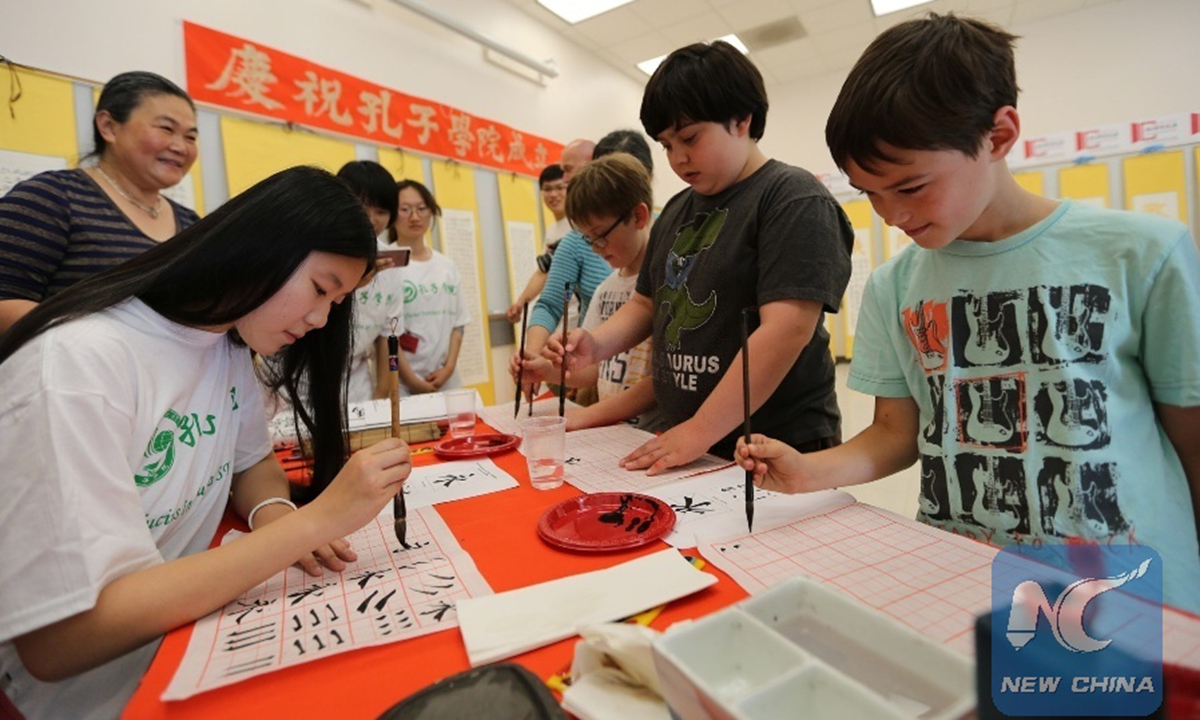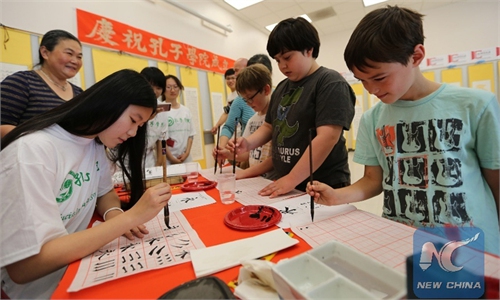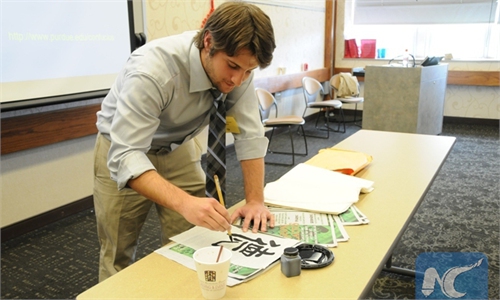
American students practising Chinese calligraphy at the Confucius Institute in San Francisco, US, September 27, 2014. Photo: Xinhua
Since US President Joe Biden took office on January 20, 2021, the divergence between Democrats and Republicans has increased markedly. Biden signed 17 executive orders on his first day in office. This included rejoining the World Health Organization (WHO) and Paris Agreement. It marked a drastic departure from Trump's policies.
Capitol Hill is also seeing growing divisions between the two parties. Republican lawmakers have repeatedly accused the Biden administration and the Democratic Party of being soft on China in both houses. They have urged the Democratic Party to pass its tough bill concerning China. At the confirmation hearings for cabinet candidates, including the secretary of state and the defense secretary, candidates were all grilled by Republican senators to make a tough stance toward China.
Even on the issue of Confucius Institutes, Republicans are repeating their groundless allegations. They are aiming to force the Biden administration to close Confucius Institutes. They are showing "zero tolerance" for the so-called Chinese influence.
The fact is this: The Confucius Institute is merely a program that focuses on Chinese language and culture education. The aim is to deepen international training and understanding of Chinese language and culture, and promoting people-to-people exchanges between China and the rest of the world.
Victoria Nuland, Biden's nominee for under secretary of state for political affairs has been criticized as a defender of the Confucius Institute program. Nuland, then an Obama administration spokeswoman at the State Department, said at a Department press briefing in May 2012, "This [Confucius Institute] is something that we support. It's part of the people-to-people understanding."
Some Republican governors, from Florida to Tennessee, have put their own political agendas above the interests of their constituencies. They are ignoring the opposition in their states and proposing to close the Confucius Institutes as rabid PR stunts.
In response to Senator Marco Rubio's letter to ask Florida educational institutions to end partnerships with Confucius Institutes in 2018, John Delaney, then president of the University of North Florida (UNF), said that the Confucius Institute on the UNF campus has prompted no complaints. He sees no reason to discontinue it.
In 2019, University of Memphis Provost Tom Nenon, a professor and dean in the College of Arts & Sciences, made similar comments, remarking that "close oversight" is maintained on the Confucius Institute to ensure it is "very transparent" about finances and activities. In a statement, Nenon said, "This oversight and transparency help us remain vigilant that the Confucius Institute at the University of Memphis remains aligned with our university values including academic freedom and objectivity in all of our teaching and research."
Some politicians, out of sheer ideological bias and political expediency for their own naked ambitions, make groundless allegations against Confucius Institutes. These moves have demonized and stigmatized the normal functioning of a China-US educational cooperation program. Worse still, they also go against the global trend of cultural exchanges and mutual learning among different civilizations
People-to-people exchanges can enhance connections between people and communicate their hearts. The Biden administration has also stated on several occasions that there will still be much more room for cooperation between China and the US even if competition between both countries exists.
It is the aspiration of the two peoples that the Biden administration will not be kidnapped by partisan differences. It is imperative to restart cultural exchanges and educational cooperation with Chinese people. We must work together to find solutions to jointly address global challenges.
The authors are from the Center for Language Education and Cooperation. opinion@globaltimes.com.cn


